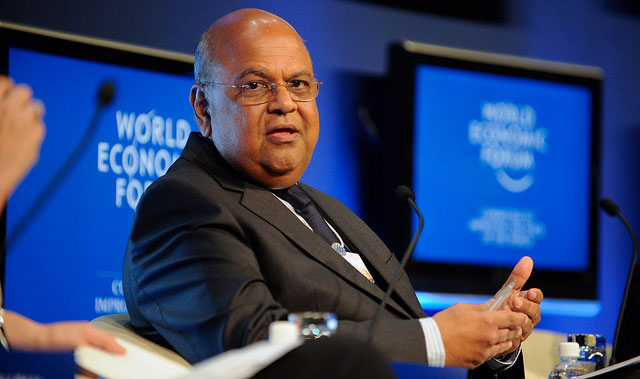
Telkom can now procure goods and services without having to go through the very public tendering process mandated by the Public Finance Management Act (PFMA), a development that will help it keep its strategic plans out of the public eye.
Finance minister Pravin Gordhan has signed a notice exempting Telkom and its subsidiaries from the provisions of the Preferential Procurement Policy Framework Act and any regulations made under section 5 of the act.
“Telkom’s exemption from the PFMA is an important milestone in Telkom’s history. Previously, and in line with PFMA requirements, Telkom has had to go out on tender for major projects. These public tenders take time to complete and result in business plans being made public at a very early stage,” said Telkom spokeswoman Jacqui O’Sullivan in e-mailed response to questions from TechCentral.
“This is not helpful in the highly competitive and fast-changing world of telecommunications,” she said. “The exemptions … will allow [us to] level the competitive playing field. We are better positioned to pursue our growth objectives in a more flexible and agile manner.”
O’Sullivan explained that there is significant history behind the exemption signed by the finance minister.
Government’s equity ownership in Telkom was first diluted in May 1997, when it disposed of 30% of the issued shares in Telkom to a strategic equity partner, Thintana, which was a consortium made up of SBC Communications (of the US; now AT&T) and Telekom Malaysia, she said.
When the PFMA was published, government was the majority shareholder in Telkom, with the company listed in schedule 2 of the PFMA as a “major public entity”.
In March 2001, the state disposed of a further 3% equity interest in Telkom to Ucingo Investments, a consortium of black empowerment investors. Government continued to hold 67% of the equity.
During the period leading up to 4 March 2003 — the date that the shares in Telkom were listed on the JSE — and in accordance with national policy objectives at the time, Telkom underwent an initial public offering. During the course of this IPO, the state disposed of additional shares in Telkom, thereby further diluting its shareholding to less than 40%.
At the time of the listing, the JSE controversially granted certain extraordinary rights to government in Telkom’s memorandum and articles of association, to last for a period of eight years.
Among other things, these rights included government’s right to appoint the chairman of the board and six of the directors and the right for government to be regarded as a “class A” shareholder. In terms of these rights, government controlled Telkom until March 2011 when the rights expired.

After Telkom’s listing in 2003, Telkom was exempted from certain provisions of the PFMA and all the treasury regulations. This was because, as a publicly listed company, it had to (and still has to) comply with the provisions of the Companies Act, the JSE’s listings requirements and corporate governance rules.
Since March 2011, when the extraordinary rights of government expired, Telkom requested that it and its subsidiaries be delisted from schedule 2 of the PFMA. Government indicated at that time that it did not want to delist Telkom from the PFMA but granted a further exemption from the act and the treasury regulations in November 2013.
As Telkom is still listed in schedule 2 of the PFMA, it still had to comply with certain provisions of the PFMA, which it had not been exempted from, and also had to comply with the Preferential Procurement Policy Framework Act and its regulations.
“Telkom and its subsidiaries … have to compete with other licenced telecommunications operators such as Vodacom, MTN, Cell C and Dimension Data, which do not have to comply with the above rigid legislation, [so] it became clear that Telkom and its subsidiaries were at a disadvantage,” explained O’Sullivan.
“As government no longer has ownership control over Telkom, we approached it to exempt the company from the remaining provisions of the PFMA… On 8 July, government granted Telkom and its subsidiaries the further exemptions,” she said. — © 2016 NewsCentral Media




